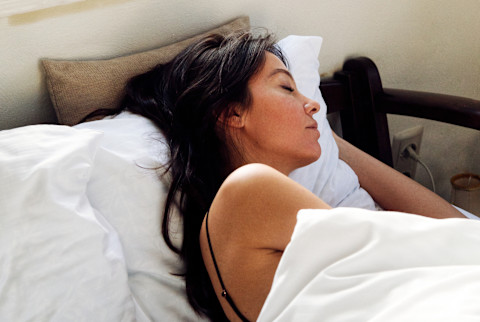The Science-Backed Way Blue Light Can Help You Sleep Better

We’ve all been warned that blue light from screens disrupts sleep. But emerging research1 shows the story is more nuanced: it’s when you get blue light that matters most, and harnessing it strategically could support your long-term health.
Light, circadian rhythms, & longevity
Your body runs on a circadian rhythm, a 24-hour internal clock that regulates sleep, metabolism, hormone release, and even immune function. Misaligned rhythms—caused by irregular sleep, nighttime light exposure, or inconsistent activity—are linked to chronic disease risk, including metabolic disorders, cardiovascular disease, and cognitive decline.
Simple interventions that optimize light exposure can help reinforce your circadian system, supporting both sleep quality and overall longevity.
What the research says
A recent study tested the effects of blue-enriched light exposure on daily activity and sleep patterns. Here’s what they found:
- Morning light enhances circadian alignment: Two hours of blue-enriched light early in the day improved rest-activity rhythm stability, increased daytime energy, and promoted consistent sleep onset.
- Evening light disrupts sleep: Exposure later in the day delayed sleep onset and lowered sleep efficiency, highlighting the importance of timing.
- Get natural light: Just 10 minutes in bright morning sunlight delivers similar circadian benefits, reinforcing wakefulness and sleep pressure for later.
Why it matters
This isn’t just about feeling rested; circadian alignment influences long-term health. Morning light exposure has been linked to improved metabolic function, hormone regulation, and even cognitive performance, while evening light exposure can throw off these systems, contributing to chronic inflammation and accelerated aging.
The takeaway
Blue light isn’t inherently bad—it’s a tool when used wisely. Prioritize morning light, minimize late-night exposure, and sync your daily rhythms with natural cues. Small adjustments like this can strengthen circadian alignment, improve sleep, and support healthy aging for years to come.
